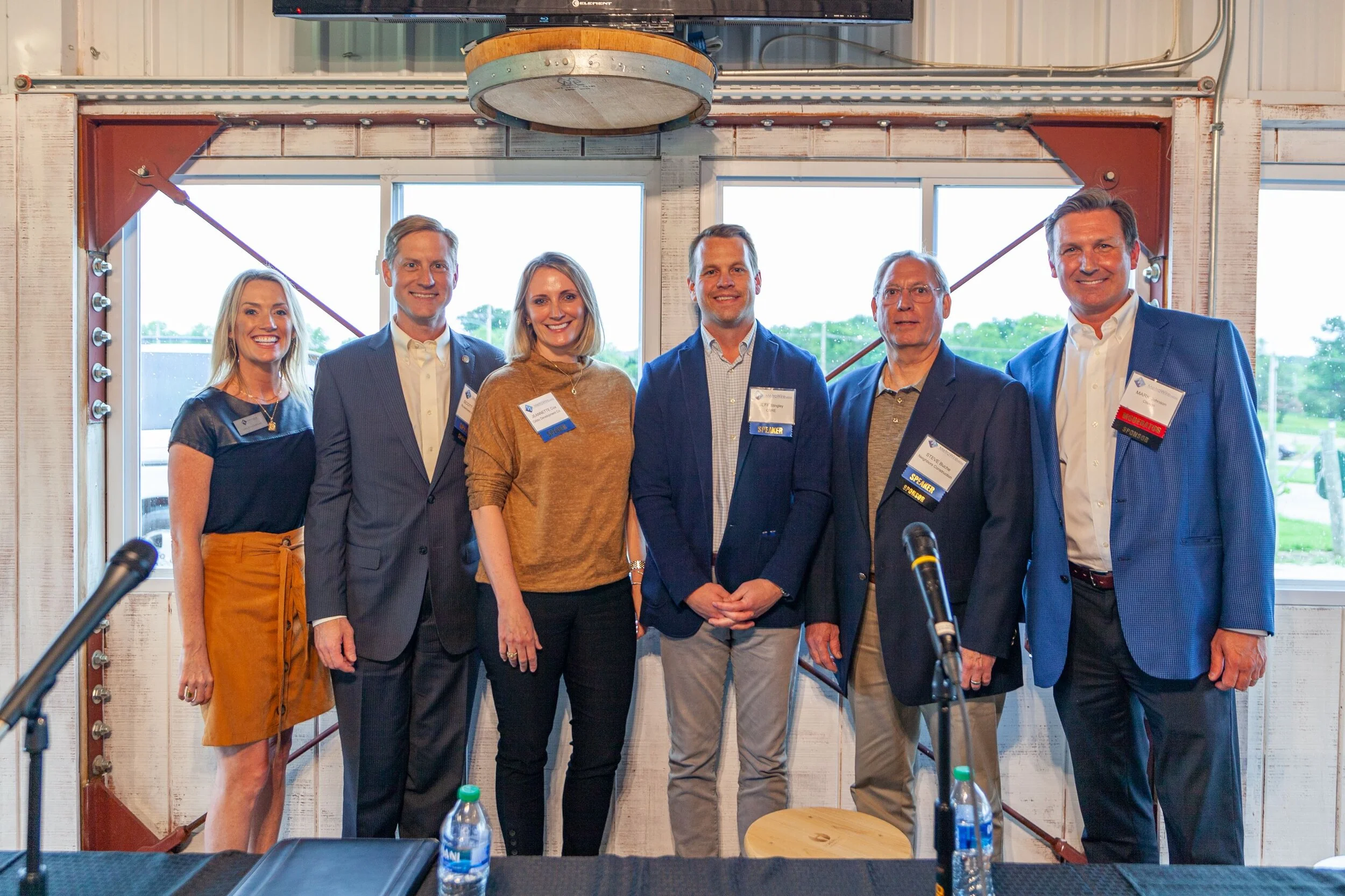The Kansas City metro multifamily market hit $1.2 billion in volume in 2020, making it a record year despite the pandemic.
Last Thursday, MetroWire Media hosted its 2021 Multifamily Summit event at Stone Pillar Vineyard & Winery featuring panelists Steve Buche, vice president at Neighbors Construction Company, Inc.; Jeannette Cox, executive vice president at Oddo Development; Scott Rosemann, PE, COO at Rosemann & Associates, P.C.; and Jeff Stingley, executive vice president at CBRE.
Mark Johnson, business consultant at Olsson, moderated the panel discussion which focused on the aftermath of the pandemic to the KC multifamily market and what needs to happen going forward to survive and thrive.
Stingley said he’s heard from clients and sellers that their Kansas City portfolios did the best of any other property region in the country.
“Kansas City has been viewed forever as a safe haven for capital, and you saw it during the past year,” Stingley said.
Cox said multifamily rents were flat during the past year, but that is about to change.
“We’re seeing a lot of traffic increase which, of course, makes the demand high,” said Cox.
“I think you’ve got to look forward. The buyers that are winning deals now are the ones that aren’t looking so much at the past, especially on the rent side, but what’s coming because it’s an anomaly —what we’ve been through,” Stingley said.
The rapid rise in the cost of materials also will impact rents. Johnson said in the past year, the price of lumber per 1000 board foot has increased from $343 to $1,635.
“Most people probably don’t have that built into their projects,” said Johnson.
“Those things equate to $10,000 to $15,000 a living unit, more money now than they did a year ago, and that’s a big impact. On a large 300-unit project, that could be $3, $3.5, $4 million just on the lumber and trusses alone. It’s really across the board on materials increases. We’re just seeing anything and everything,” Buche said.
“We’re having to fight that with alternative materials, with early procurement, which is turning into need for storage. And so, it’s just creating some new problems in our industry to actually building the buildings that we haven’t seen before,” said Buche.
“We’re basically asked to sign it that day or the price may change the next day (in regards to approvals on materials quotes),” Cox said.
“We do a lot of affordable housing design and construction work. And that is a market that is not able to accommodate price increases quite like this,” said Rosemann.
On April 8, 2021, a Kansas City, Missouri (KCMO) ordinance took effect which requires projects seeking economic incentives to contain a minimum number of affordable housing units to qualify for those incentives.
Rosemann said the ordinance is driving clients to put contracts on land outside of the city limits of KCMO, even though KCMO has an affordable housing shortage.
“[The ordinance] is going to keep new supply down in the urban core which has been just smothered by new deliveries and free rent for the past four or five years, so maybe that’s a nice little break. Longer term though, I hope there’s a solution middle ground because I hear that the clients, the ones that are building here or have built here, say it’s unfeasible to build in the market with the way it’s written now,” said Stingley.
Stingley predicts that 2021 could be a record year for the multifamily housing market, with the percentage of inventory increasing by 20 percent by year end.
The pandemic has highlighted a trend in combining living and work spaces. Rosemann said flexibility is essential.
“And by that I mean flexibility in all things: flexibility in the design of the individual unit, flexibility in the design of the overall facility, flexibility in amenity spaces and in clubhouse spaces, and within common spaces within a building, if it’s a corridor or building with an elevator,” said Rosemann.
Rosemann said the most successful projects will be those with buildings designed for the next 30 to 40 years to be flexible enough to adapt should something completely unforeseen like the pandemic happen again.
Cox and Stingley said they’ve seen an increased demand for one bedroom units or one bedroom with dens over two bedroom units. Cox said because of the need for space and privacy when working from home, many tenants are opting out of the roommate lifestyle.
__________________________________________________________________
Mark your calendars now for MWM’s next event: Retail Summit on July 22nd. If you would like to sponsor the event or nominate a panelist, please email lisa@metrowiremedia.com.

